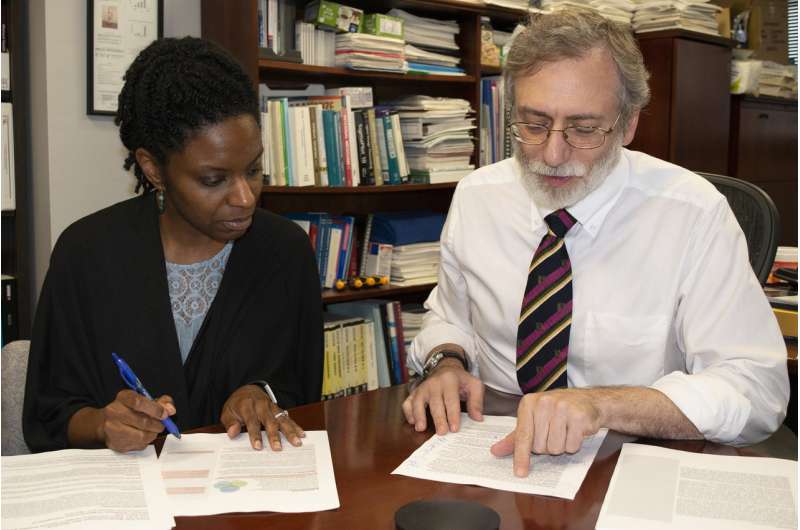Medical referrals: Closing the communication loop to improve care and avoid delays

Individuals are frequently referred by their primary care physician to medical specialists—oncologists, orthopedic surgeons, cardiologists, or dozens of others—but for a significant number of these patients, the referral fails, adversely affecting their health care. A new study addresses breakdowns in the referral process and presents a prototype template using evidence-based design to improve communication about referrals among clinicians.
"Too often, patients are asked to provide information to the specialist—to provide their medical history and other pertinent details completely and accurately—to bring the specialist up to speed," said study corresponding author Regenstrief Institute investigator April Savoy, Ph.D., a research scientist with the VA Center for Health Information and Communication at the Richard L. Roudebush Veterans Affairs Medical Center. "Patients shouldn't have to be human 'thumb drives'. That's not the best or safest way for medical information to be communicated among clinicians." Dr. Savoy is a health services researcher and a human factors engineer.
More seamless coordination throughout the continuum of care enables the patient to participate without being the messenger and mitigates communication problems.
Communication breakdowns include delays by the primary care physician's office staff in making the appointment with the specialist, transmission of incomplete medical histories, as well as delays in the specialist's office transferring appointment and test results back to the primary care physician. Current electronic health record systems require physicians to complete forms that are not always well designed to support communication between primary care physicians and other types of specialists.
Customizing technology to the needs of these physicians, Dr. Savoy has developed a prototype referral template for use by primary care physicians via their electronic health record system.
The study found that introducing the new template into the VA electronic health record system to implement selected changes in the referral communication process significantly increased clinicians' satisfaction, workload, and efficiency, with implications to improve delivery of care.
"Failure of the primary care doctor's office to request the appointment, or failure of the specialist's office to address the request for a consultation, can be caused by something as basic as a message buried in an inbox, or a failure to confirm availability with the patient," said Regenstrief Institute's Center for Health Services Research and VA Center for Health Information and Communication Director Michael Weiner, M.D., M.P.H., senior author of the study. "Like many other Americans, veterans receive medical care across multiple sites and from a variety of specialists. Many of the other health systems that, like the VA, value efficiency, organizational integration and, above all, improved clinical care, can benefit from our work."
Among the perplexing issues that Dr. Savoy's team encountered were unstated or unclear goals in referral, specialists rejecting an order for consultation pending additional information, missing details that needed to be provided by patient or caregiver, and phone tag between busy professionals.
The new, flexible referral template addressed these issues by providing a framework for specific clinical questions or reason for referral, automatically including all pertinent clinical information, requiring a statement of urgency, and facilitating real-time discussion with the specialist.
"Comparative Usability Evaluation of Consultation Order Templates in a Simulated Primary Care Environment" is published in the November issue of Applied Ergonomics. The research was supported by the U.S. Department of Veterans Affairs.
More information: April Savoy et al, Comparative usability evaluation of consultation order templates in a simulated primary care environment, Applied Ergonomics (2018). DOI: 10.1016/j.apergo.2018.05.013

















